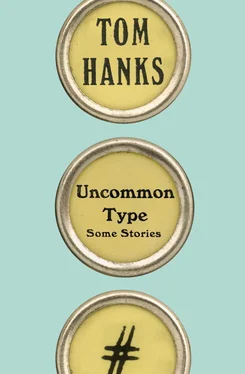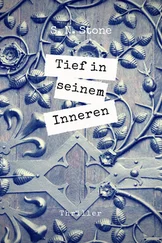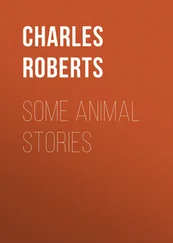As he descended the steps to the street, he heard a burst of laughter from the men and Dorothy taking back up her typing: clack-clack clack. Clack.
—
As Costas was counting out his supply of change in the cash register, a man in a clean blue-striped suit took a stool at the counter. The lunch rush would be picking up soon, the regulars would come and go until after 3:00 p.m., and Costas would need to make change for paper money. After that, Costas would have time to read the paper and find his list of new words. English was not a hard language to learn as long as you studied the newspaper every day and had a lot of American customers to listen to talk and talk and talk.
His wife was wiping down the tables, so it was Costas who asked the man in the clean and pressed blue pin-striped suit, “What can I bring ya, pal?”
Assan laid his few coins on the counter, the last of the money in his pocket. “A coffee, please. American coffee, sweet, with milk.”
Costas recognized Assan and flushed with anger. “You some kind of joker?”
“I make no jokes.”
“Demetri send you back here? Again?”
“No. I just came for a coffee.”
“Bullshit you came for just a coffee!” Costas was so angry he slammed a mug down so hard in front of the coffee urn he cracked it. “Nico!” he yelled.
A boy, as short as Costas, popped out from the kitchen. “Huh?”
“More coffee mugs!”
Nico carried out a tray of heavy mugs for the American coffee. There was no way the boy was not Costas’s son. The only differences between them were twenty years and ten kilos.
Costas almost tossed the hot coffee into Assan’s lap. “That’s a nickel!” he said, taking one of the thick coins off the counter, the one with the humpbacked cow. Assan poured milk and sugar into the mug and stirred slowly.
“You walk into my place and think that because you made it to America a job is waiting for you.” Costas was leaning on the counter, so short his eyes were equal with Assan’s. “You go cry to that Corfu bastard and he says, ‘Go see Costas,’ and I’m supposed to pay you to work for me?”
Assan sipped his coffee.
“What the hell is your name?”
“Assan.”
“Assan? Not even Greek and here for a job!”
“Today I’m here for coffee.”
Costas was rocking on his heels, like a man so angry he could leap across the counter and start a fight. “I’m supposed to be so rich I must have jobs for anyone, eh? ‘Costas is a big shot! He has his own restaurant! He does so much business he has jobs coming out of his ass! You can come to America and work for him!’ Bullshit!”
Assan’s mug was almost emptied. “Can I have another, please?”
“No! No more coffee for you!” Costas stared Assan in his eyes for a long moment. “Bulgarian, huh?”
“That’s right.” Assan had finished the coffee, setting the mug on the counter.
“Okay then,” Costas said. “Now take off that nice jacket and hang it on a hook in the back. Nico will teach you how to scrub the pots.”
==============
Our Town Today
with
Hank Fiset

==============
YOUR EVANGELISTA, ESPERANZA
CUPPA JOE, PAL?Addicted to the stuff! Coffee, that is. I’m a newsman, you see, and the newsroom that doesn’t run on coffee puts out a lousy paper, I’ll bet. The pots here at the Tri-Cities Daily News/Herald are filled to the brim, even as most of the staff head out for the ubiquitous high-end spots, the ones with baristas and flavor shots for six bucks a throw. A tour of the caffeine parlors in our three conjoined metropolises will prove that good wake-’em-up is roasted, brewed, pressure-steamed, and poured in damn fine style. Try Amy’s Drive-Thru, a converted taco stand on the Miracle Mile. She’ll pop your eyes wide with a triple-bang espresso with a hot-pepper stirrer…. The Corker & Smythe Coffee Shop in the old Kahle Mercantile Building on Triumph Square just recently offered takeout, and reluctantly at that. Better to sit at the counter and sip that nectar d’noir out of those deep porcelain mugs…. Kaffee Boss has three stores—one at Wadsworth and Sequoia—serving the locals in leather-sleeved mason jars. Whatever you do, don’t ask for milk or creamer. They are coffee purists and make a point of telling you why. Java-Va-Voom on Second Boulevard at North Payne in East Corning has something no other coffee place can match—a unique sound. There is the whissh of the frother, the chitter-chatter of the staff and customers, and music, soft, in the background, like the musical score of a movie playing next door. Occasionally, there is also the click-clack made by a typist, but in no ordinary sense of the word.
* * *
ESPERANZA CRUZ-BUSTERMENTE,born and raised in nearby Orangeville, is an Account Adviser for a local bank, though, to many people, that is her second job. Many folks know her as an evangelista , a typist who uses her words-per-minute skills for other people. In Old Mexico, educated nuns served their flocks by typing important documents—applications, receipts, official papers, tax records, sometimes even love letters for the illiterate and those who lacked access to the once-technological marvel that is a typewriter. Esperanza’s parents, like many others, learned touch typing from the evangelistas, then made a living by typing the messages, missives, and memoranda needed by the public. No one got rich, but sentences got stamped into paper.
* * *
ESPERANZA HAS Atable at a Java-Va-Voom, where, with her large drip-with-soy, she works from a stack of blank, naked pages at the ready beside her typewriter. She’s been using the place for a while now. For those unfamiliar with the sound and rhythm of a typewriter in use, Esperanza’s clacking took some getting used to. “There were complaints at first,” Esperanza told me. “I’d be typing away and get asked why I wasn’t working on a laptop, which is quieter and easier. Once, two policemen walked in and I thought, Have they called the cops on me? Turns out, they were just coming in for lattes.”
* * *
WHY GO ANALOG?“My email was hacked,” Esperanza told me. By who? “The Russians? The NSC? Fake Nigerian princes? Who knows? My data was stolen. My life was such a mess for months.” These days she uses the Internet sparingly and has an old-style flip phone, with which she can text but which she prefers to use the old-style way—by getting and receiving actual telephone calls. She never has to ask for the wi-fi password. And as for Facebook, Snapchat, Instagram, et al.? “Gave them up,” she says, almost bragging. “When the hack happened and I went off social media, my day gained, like, six hours! I spent so long checking my phone every few minutes. Never mind how much time I wasted playing SnoKon, catching colored balls of ice in a little triangle cup for points.” The only negative? “My friends had to be taught how to get ahold of me.” What is written, exactly, on that typewriter of hers? “Lots! I have a big family. Birthdays, the nieces and nephews get a letter and a five- or ten-dollar bill. I write memos for work that I either copy or rewrite and email at the office. And here…” She held up a page filled with the neatest, most perfectly formatted document you could ask for. “This is my grocery list.”
* * *
OTHER CUSTOMERS SEEKEsperanza for her Little Nun services. “The kids are fascinated by my typewriter. I let them peck out their name as Mom waits for her order. Older ones type out raps and poems.” Grown-ups seek her services, too. “No one has typewriters anymore, none that work. But typewritten letters are special. Some folks come with letters they’ve composed on a computer they want me to type out for them and make one of a kind. Before Valentine’s or Mother’s Day, I could sit here for hours and type notes for folks lined up around the block. If I charged, I’d be as rich as a good florist.” For such personal service Esperanza may accept a free coffee. Regular in the mornings. Decaf in the afternoon.
Читать дальше












